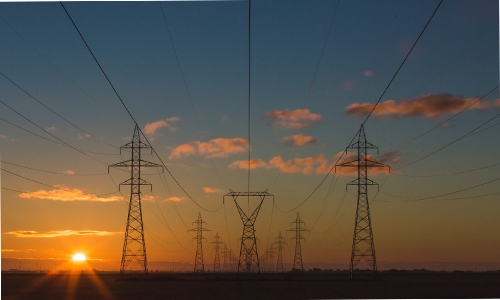Energy from harnessed waste is future
The COVID-19 pandemic has posed various challenges for nations across the world during its now nearly six-month long run. Be it citizen health and well-being or economy, the epidemic of colossal proportions has managed to adversely impact almost all spheres of a nation. The post pandemic path to recovery seems equally daunting as all aspects of economy which have come to a grinding halt need to be restarted and rejuvenated. This recovery process is nothing short of rebuilding the critical components of a nation and as such provides a never before opportunity to fine-tune some sectors and reset some other ones for greater efficiency and compatibility to current conditions.
Like any other nation, the impact of climate change has taken its toll on the environmental conditions of Bahrain by causing the delicate marine and land-based ecology to be compromised. In addition to this Bahrain’s natural resources too are getting stretched to their limits putting a lot of strain on energy sources and increasing the dependence on fossil fuel to further power the economy. As the fossil fuels continue to dictate the growth narrative, renewable energy options must not be allowed to fall into the back seat. As Bahrain endeavours to emerge stronger and better in the post COVID era, it must strengthen its renewable energy portfolio and ensure a greater inclusivity of the same in the growth story of Bahrain. Various innovative renewable energy options can be included into the energy-mix to power the economy. Energy from harnessed waste is one such sustainable option.
The population of Bahrain is expected to reach 1.73 million by end of 2020. Being a high-income nation with equally high human development index score of 0.824 which translates to 47th rank globally, Bahrain is a country in advanced mode of progress. The predominantly oil powered economy is having good growth contribution from finance and tourism sectors as well. The strategic geographical location, good infrastructure and moderate weather has ensured Bahrain becoming a preferred epicenter for business and leisure alike. Naturally, this increase in commerce and tourism has also meant an increase in municipal solid waste (msw) generation which according to some estimates is now one of the highest in the world with approximately 1,200 million tonnes of MSW being generated every year, or approximately 4000 tonnes per day generation of MSW factoring in the population and institution MSW output. This MSW is usually sent to Asker landfill 25 km from Manama.
Given this quantum of MSW generation Bahrain is poised to extract maximum recovery of energy from this waste provided the solutions for the same are technologically advanced and cutting edge such as thermochemical technology based, anaerobic digestion technology based, and plasma gasification based as opposed to direct combustion or incineration methods. The primary objective of waste to energy generation is to extract electricity or heat or both from MSW. Utilizing the advanced waste to energy (WTE) methods Bahrain can scale up the MSW processing for harnessing energy and increase the renewable energy quotient in the predominantly fossil fuel fed power grid. This can help cut down dependence on fossil fuels thereby reducing green-house gas emissions in a major way.
The increasing reliance on renewable energy will also help reduce fossil fuel usage driven heat generation and thereby control extreme ambient temperatures in Bahrain. Apart from imbibing the best waste to energy practices from around the world, Bahrain can also explore innovative models where scaled down waste to energy generators are installed in high population density and high MSW generating areas of Bahrain. This will not only reduce the load on landfills, reduce transportation costs of MSW but also bring the concept of renewable energy and recycling to the doorstep of the citizens and therefore increase much needed awareness and sensitivity for the environment. These mini-WTE plants can be privately run and government subsidized. This will in turn promote employment and entrepreneurship which is very much needed in the post COVID phase of economic revival.
In today’s scenario of mounting MSW, discarding the waste without committing it entirely for WTE is an opportunity lost. Bahrain has a good track record of harnessing waste; it just needs scaling up so that the nation has a healthy mix of renewable and non-renewable power at its disposal.
Disclaimer: Views expressed by columnists are personal and need not necessarily reflect our editorial stances.
Related Posts

